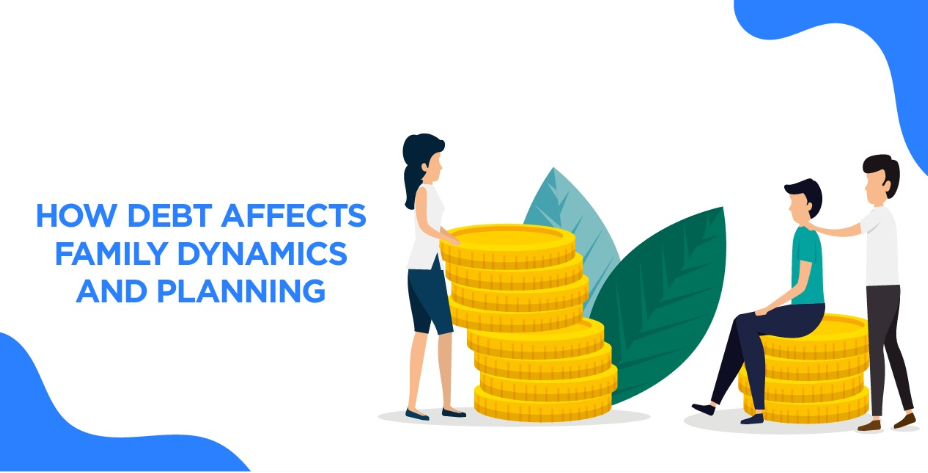Debt can silently shape the lives of families, influencing relationships, emotions, and future plans. Imagine a family of four living in Hyderabad. Ravi, the father, recently took a personal loan to consolidate debt, hoping it would simplify his payments.
However, the monthly EMI turned out to be more than expected, leaving the family with little room for savings or recreational expenses. Tensions started building as Ravi and his wife, Priya, argued more about finances, and their children noticed the growing stress.
This example shows how debt can ripple through family dynamics, affecting every member. Let’s explore this in detail.
Effects of Debt on Family Relationships
- Increased Stress and Conflicts
- Financial strain from debt often causes stress. This can lead to frequent arguments between spouses or family members.
- For example, families with debt may argue 20% more often than those without financial burdens, according to surveys.
- Impact on Children
- Children feel the effects too. They might miss out on school trips or extracurricular activities due to limited funds, which can impact their self-esteem and social life.
- Children from financially strained families end up feeling isolated at school.
- Parental Guilt
- Parents, like Ravi, may feel guilty for not being able to provide as they’d like. This emotional toll affects their ability to maintain a positive environment at home.
How Debt Shapes Family Planning
- Delayed Milestones
- Big decisions like buying a house, taking a family trip, or even having another child are often postponed.
- For instance, a family paying ₹30,000 EMI monthly may struggle to save enough for a down payment on a house.
- Reduced Social Engagement
- Fear of judgment or financial limits may stop families from attending social events or engaging with their community.
- Challenges in Long-term Planning
- Families often prioritize debt repayment over saving for emergencies or future goals like their child’s higher education.
- Example: If a family allocates ₹50,000 monthly income toward debt, saving for an emergency fund becomes difficult.
Strategies to Manage Debt’s Impact
1. Open Communication
- Ravi and Priya could sit together, set a family budget, and involve their children in small discussions about money. Talking openly reduces misunderstandings.
2. Seek Professional Advice
- Financial advisors can help families restructure their loans or suggest better repayment strategies. For example, switching to a loan with a lower interest rate might save ₹5,000 monthly.
3. Build Financial Literacy
- Teaching children about saving money and smart spending empowers them to handle future financial situations better.
Simplifying Debt with a Table
| Scenario | Monthly Impact (₹) | Stress Level |
| Without Debt | Savings of ₹50,000 | Low |
| With ₹5 Lakh Personal Loan | EMI ₹15,000 | Moderate |
| With ₹10 Lakh Personal Loan | EMI ₹30,000 | High |
This table shows how different debt levels impact a family’s finances and stress.
Conclusion
Debt doesn’t just affect bank accounts; it impacts relationships, emotions, and future dreams. But with open communication, professional advice, and careful planning, families can overcome these challenges. Just like Ravi’s family, addressing debt head-on with a plan can bring everyone closer while paving the way for a financially secure future.
FAQs
- What is personal loan debt consolidation?
It combines multiple debts into a single loan for easier repayment. - How does debt affect family relationships?
It can increase stress, leading to conflicts and strained communication. - Can children sense financial stress in families?
Yes, children often notice tension and may feel its emotional impact. - What’s the best way to discuss debt in a family?
Be honest and transparent while involving all members in solutions. - How can families save while repaying loans?Create a monthly budget and prioritize saving small amounts regularly.



